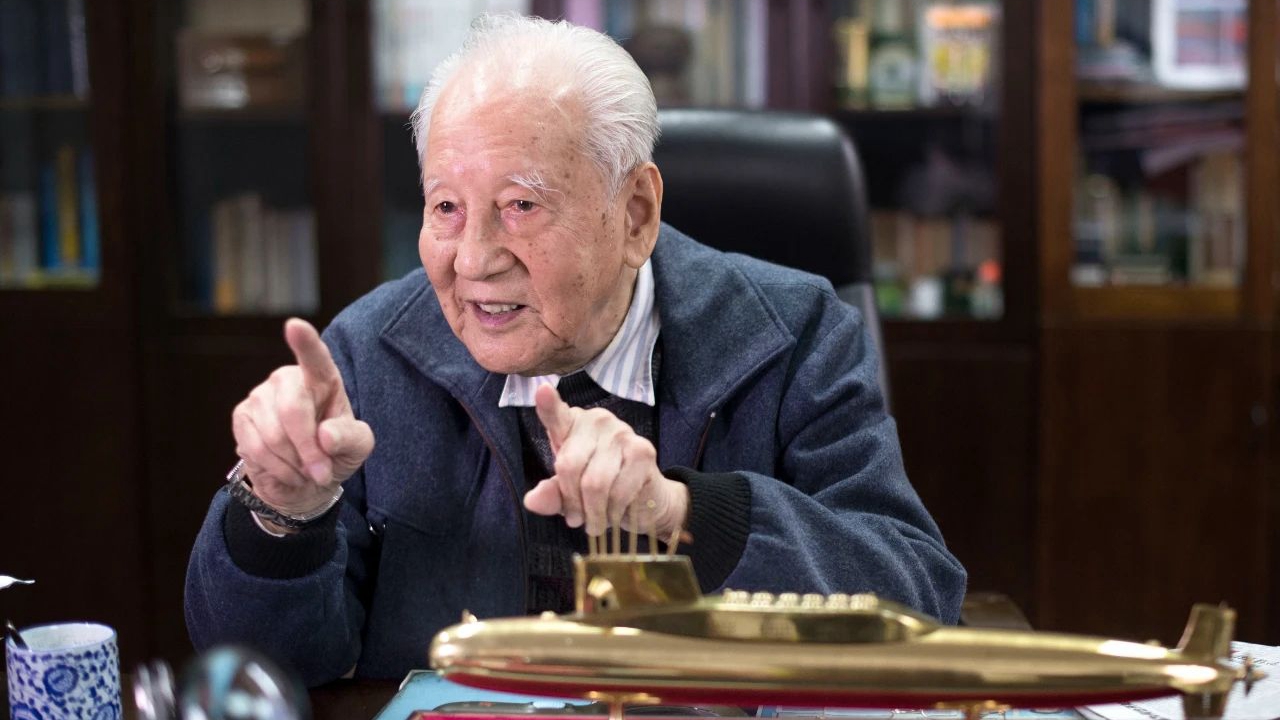Father of China's nuclear submarines passes away at 99
Writer: | Editor: Lin Qiuying | From: Shenzhen Daily | Updated: 2025-02-07

Huang Xuhua, known as the "father of China's nuclear submarines," is seen in an undated file photo. Xinhua
Huang Xuhua, the chief designer of China's first-generation nuclear submarines and known as the "father of China's nuclear submarines," passed away at the age of 99 in Wuhan, Central China's Hubei Province yesterday evening.
Early life and influence
As a pioneering figure in China's nuclear submarine program, Huang dedicated his entire life to this critical national project.
Born into a medical family in Haifeng, Guangdong, Huang faced the harsh realities of war during his childhood, notably during the Japanese invasion. As schools closed, he traversed great distances to find educational opportunities. Amidst bombings and displacement, he questioned his teachers: "Why is China so weak? Why can't we live in peace?" The answer — "China is weak" — instilled in him a profound desire to pursue science and technology to uplift his nation.
In 1945, after Japan's defeat, Huang enrolled in Jiaotong University to study shipbuilding, fueled by his passion for the ocean. His education was marked by interactions with prominent professors, and he later became involved in student activism, secretly joining the Communist Party of China to begin a lifelong journey of service to his country.
A life of sacrifice and innovation
In 1958, as China embarked on developing its nuclear submarine capabilities, Huang was selected as one of the 29 core members of this critical yet secretive project.
He could not reveal his work or even his whereabouts to his family. His mother, who had not seen him for years, only learned about his achievements through an article in a magazine in 1987. Huang's dedication meant sacrificing personal relationships for the greater good.
With no access to foreign technology, Huang and his team had to use whatever resources they had. They used children's toy submarines to understand the basic structure and design of real nuclear submarines. Without computers, they relied on abacuses to calculate complex data, ensuring accuracy through meticulous cross-checking. They even used a scale to measure the weight of every component to ensure the submarine's stability. These "primitive" methods led to the successful launch of China's first nuclear submarine in 1970.
Deep dive: a test of courage
In 1988, China's nuclear submarine was ready for its ultimate test — a deep dive to its maximum operational depth. This was a highly dangerous mission, as any flaw could lead to catastrophic failure. At 64 years old, Huang decided to join the dive, despite the risks. During the dive, the submarine's hull creaked under immense pressure, but Huang remained focused, recording crucial data. When the submarine resurfaced safely, he wrote a simple poem expressing his passion and joy: "At 60, I explore the dragon's palace. Amidst the roaring waves, I find my pleasure."
Recognition and legacy
Huang's contributions were widely recognized during his later years. In a ceremony held at the Great Hall of the People in Beijing, President Xi Jinping honored Huang along with 57 other notable individuals for their contributions to the country. At 93, Huang was delighted to find himself sitting next to the president during the event, a testament to his lasting impact on the state and his esteemed recognition in society.
Despite his numerous contributions to the nuclear fleet, Huang often prioritized his work over family time, leading his wife, Li Shiyin, to raise their three daughters alone. Despite the long periods of separation, their bond remained strong. Huang often said that while he loved his family deeply, his love for his country was paramount. His life was a continuous journey of service and sacrifice.